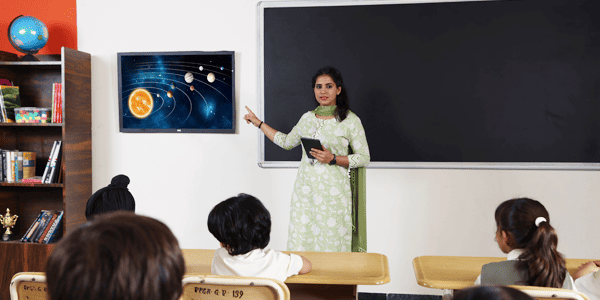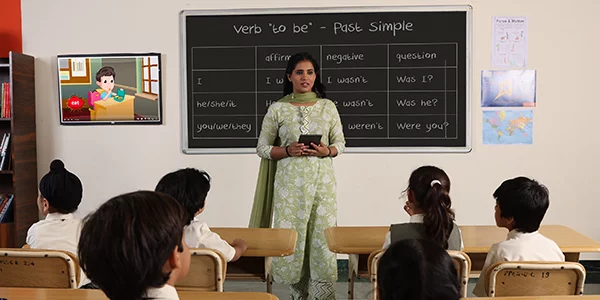Unlock Your Child’s Potential with Primary Science Tuition Singapore
Unlock Your Child’s Potential with Primary Science Tuition Singapore
Blog Article
Discover the Essential Advantages of Understanding Primary Scientific Research for Young Learners
The relevance of main science education and learning for young students prolongs much beyond mere knowledge acquisition; it offers as an essential column in establishing crucial abilities such as crucial reasoning, analytical, and creative thinking. Engaging with scientific ideas through inquiry-based and interactive tasks not just cultivates curiosity yet additionally lays the groundwork for resilient, certain learners.
Enhancing Important Believing Abilities
Promoting vital thinking abilities in young learners is essential for their cognitive advancement and future academic success. Critical reasoning enables youngsters to assess info, evaluate proof, and make notified choices, which are crucial abilities in today's information-rich society. By participating in scientific questions, young learners can boost these skills as they discover concepts with monitoring, thinking, and testing.
In main science education, teachers can facilitate crucial reasoning by motivating pupils to ask inquiries, develop theories, and carry out experiments. This hands-on technique enables youngsters to practice problem-solving and create sensible reasoning skills. For instance, when students explore the residential or commercial properties of materials or the principles of activity, they learn to assess their searchings for critically and reason based upon proof.
Additionally, discussions and collaborative projects can advertise crucial thinking by offering opportunities for learners to verbalize their thoughts, difficulty assumptions, and consider diverse perspectives. By developing a helpful environment that values inquiry and representation, instructors can support important believing abilities that encourage young students to end up being lifelong learners and independent thinkers. Inevitably, boosting these abilities lays a durable structure for their future scholastic undertakings and personal development.
Cultivating Interest and Exploration

Main science education provides an organized environment where young students can explore numerous phenomena with hands-on experiments and observations. By enabling them to interact with products and participate in inquiry-based understanding, instructors produce possibilities for kids to create hypotheses, check their ideas, and reason. Such experiences support a sense of marvel and excitement regarding scientific research.

Building Confidence in Issue Fixing
Structure confidence in problem-solving is a critical part of key scientific research education and learning that empowers young students to come close to obstacles with strength and creative thinking - primary science tuition Singapore. When children are encouraged to engage with clinical concepts with hands-on tasks and inquiry-based understanding, they create important skills in important reasoning and evaluation. This procedure not only boosts their understanding of clinical concepts however likewise fosters a sense of ownership over their knowing
To build confidence, educators must produce an encouraging atmosphere where blunders are deemed chances for development as opposed to failings. This motivates students to take dangers and discover different solutions to issues. By providing scaffolding and support, teachers can assist students browse complex tasks, gradually boosting their self-reliance in problem-solving circumstances.
Moreover, collaborative knowing experiences, such as group projects or experiments, can even more improve students' confidence as they learn to articulate their ideas and pay attention to others' viewpoints. These communications nurture social skills and reinforce the idea that analytical is typically a collective endeavor. Ultimately, growing self-confidence in analytical prepares young learners for future academic obstacles and outfits them with the devices required for lifelong learning.
Encouraging Creative Thinking and Advancement
In the realm of primary scientific research education and learning, urging imagination and more info here advancement is vital for cultivating a dynamic learning setting. By cultivating a society where young students can check out ideas and experiment easily, educators assist students develop crucial thinking skills and a passion for discovery. Creativity in scientific research encourages children to ask questions, devise hypotheses, and participate in hands-on tasks that stimulate their creativity.
Integrating open-ended projects and inquiry-based learning right into the curriculum permits students to share their distinct perspectives and options. When tasked with addressing a problem relevant to their environment, students can brainstorm numerous approaches, leading to innovative end results that you could try this out display their originality. This not only grows their understanding of clinical concepts however additionally imparts a feeling of ownership over their understanding process.
Moreover, creative scientific research education nurtures cooperation among peers, as students typically share concepts and improve each other's understandings - primary science tuition Singapore. This collective spirit promotes not only advancement however likewise necessary social skills. Therefore, by focusing on creative thinking and innovation in primary scientific research education and learning, we encourage young students to believe critically, embrace challenges, and envision possibilities, laying a solid structure for long-lasting discovering and exploration
Getting Ready For Future Knowing Challenges
Young students' capacity to browse future knowing difficulties rests on a solid structure in primary science education. This fundamental understanding equips pupils with vital assuming skills and a methodical approach to analytic, necessary for taking on complex problems in an ever-evolving world. Main scientific research fosters inquiry-based learning, encouraging students to ask questions, explore hypotheses, and take part in hands-on experiments.
As they develop these skills, students end up being proficient at analyzing data, identifying patterns, and attracting informed verdicts. Such expertises are crucial not only in clinical fields but additionally in design, mathematics, and modern technology (STEM), where interdisciplinary knowledge is significantly important.
In addition, primary science education and learning grows a sense of interest and strength in young learners, allowing them to watch challenges as chances for development. As they run into and conquer challenges in their clinical expeditions, they build confidence in their capability to adjust and innovate.
Ultimately, a solid foundation in main science not just prepares young learners for academic quests yet additionally outfits them with the devices necessary for lifelong knowing and versatility in a quickly altering worldwide landscape. By purchasing key scientific research education and learning, we are spending in the future possibility of our students.
Verdict
Recognizing main science is vital for young students, as it fosters critical reasoning, interest, and imagination. Ultimately, the advantages of main science education prepare youngsters for future scholastic quests and instill long-lasting learning behaviors necessary for flourishing in an ever-evolving world.
The value of primary science education and learning for young students extends far past mere knowledge purchase; it offers as a fundamental pillar in establishing important skills such as essential thinking, problem-solving, and imagination. By developing a supportive atmosphere that values questions and representation, educators can nurture critical believing abilities that empower young learners to become independent thinkers and long-lasting students. Thus, by prioritizing imagination and advancement in primary scientific research education and learning, anchor we empower young learners to believe seriously, embrace obstacles, and picture opportunities, laying a solid structure for lifelong discovering and exploration.
Young students' capability to browse future knowing challenges hinges on a solid foundation in primary scientific research education and learning.Comprehending main science is essential for young learners, as it promotes critical thinking, interest, and creativity.
Report this page